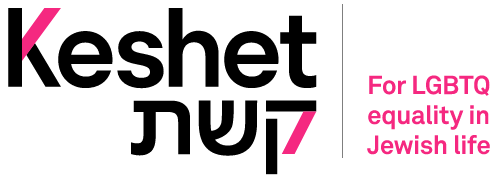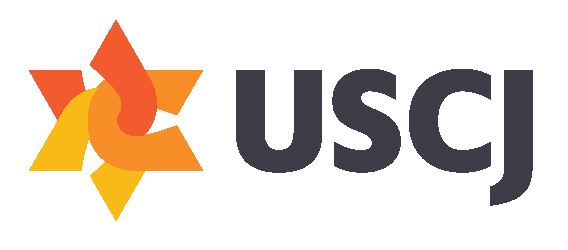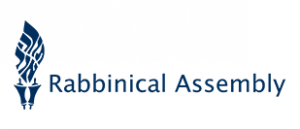Toldot: A Potato, An Egg, and a Knife
Sermon given November 22, 2025
Shabbat shalom, everybody.
Once upon a time a daughter complained to her mother that life wasn’t fair. “I feel like I can’t control anything”, she said.
Her mother, a chef, didn’t say anything. Instead, she took her out to the kitchen. She took three identical pots, filled them each with the same amount of water, and brought the water to a boil over the fire.
Into the first pot, her mother dropped a raw potato.
Into the second pot, her mother delicately placed a raw egg.
And into the final pot, she slipped a steel chopping knife.
A few minutes later, her mother carefully took the pots off of the fire. She put the egg and the potato on a plate and handed it all to her daughter. She took out the knife and lay it on the table.
Then she asked, “Daughter, what do you see?”
“I see a potato, an egg, and a knife” the daughter replied.
“Look closer” her mother said, “and touch the potato.” The daughter did and she noticed that even though the potato had started out hard, in the boiling water it had become soft and mushy.
She then touched the egg and noticed that though it had once been fragile, in the boiling water it had become hard and strong.
“You see?” said the mother. “The same boiling water affected the potato and the egg in different ways. Life is like the boiling water: It is what we are given. We can’t control where we are born or what we are taught as young children. But we can sometimes influence how we respond to what life gives us-- what we do with the experiences life offers. We can choose, sometimes, whether we want to grow softer, like the potato, or harder, like the egg.
“I understand, mother”, said the daughter. “But what about the knife? It is just as hard, and just as sharp, right now, as before it went into the boiling water. It didn’t change, like the potato or egg. ”
“Ah”, said the mother. “But the boiling water DID change the knife. The knife is now kasher.”
Now. On a basic level, for the purposes of this drash, Torah is like the boiling water in the story.
Torah is given to us, as Jews. Torah also impacts ours lives in many ways: it is our sometimes confusing, sometimes frustrating guide; it is our font of spiritual nourishment; and it is an ongoing, mysterious, powerful source for inspiration and change and wrestling.
And, just like the boiling water, which causes the potato to soften, the egg to harden, and the knife to become mysteriously kosher again, the Torah can influence different people, different situations, and different moments differently. Two Jews can interpret the same Jewish lessons or Torah stories in very different ways, ending up on different sides of the political or halachic spectrum.
And yet-- even with all of our differences-- the boiling water that is Torah remains the same for all of us. The question is: To what extent, and in what fashion, do we let the sacred words of Torah mold us, shape us, influence us, and guide us in the world?
How do we know when we are supposed to stand our ground, to dig in our heels, to strengthen ourselves like that egg in the boiling water, to stick to our guns, to hold the line?
How do we know when we are supposed to soak in the Torah and let it soften us and make us malleable and vulnerable, like the potato, make us more open?
How do we know when we’re supposed to sit with the Torah and let it transform us together into something arguably even more wonderful than we were before, like the coffee, let it help us grow?
And how do we know when we are supposed to be transformed on a spiritual level, not on a physical level, like the knife: to surrender to the power of faith, and the knowledge that while we may not understand everything about the Torah, following its lessons makes us holy, makes us kasher, like that knife, and that this holiness is, in and of itself, worth it?
These are questions at the core of our theology, as a people who value both our sacred and ancient traditions and wanting to exist honestly in the modern world. These questions provide the basis for why we have such a variety of belief and practice within any Jewish community, to say nothing of our various denominational differences.
And they are also questions that pulse throughout the stories in our Torah.
The story in today’s Torah portion about Isaac and Rebekah’s sons is no exception. Jacob and Esau, as far as siblings go, are famous. Or perhaps more accurately, they are infamous. Theirs is a story of brotherly conflict: Like almost all of our biblical family stories, it’s a masterclass in how not to communicate and how not to build healthy relationships. It’s also a fantastic example, over time, of watching how one family evolves in their relationship to the world around them, and begins to take ownership over the choices they are making.
Now, whenever I read this story, I also always end up thinking something like “Wait a minute. Didn’t God set this all up? Didn’t God predetermine the entire mess before the boys were even born? Did they actually have any hope at all of NOT turning out this way?”
Because, to quote, in Genesis 25, verse 23, after Rebekah has reached out to God because she is suffering through a difficult pregnancy, God says:
שְׁנֵ֤י () [גוֹיִם֙] בְּבִטְנֵ֔ךְ
“Two nations are in your womb, and two kingdoms will separate from you, and one kingdom will become mightier than the other, and the elder will serve the younger.”
See? There! Like I was saying! God knew, right? It was all foretold, it was all fate. Jacob had to plot for the birthright. There was clearly no other option. Jacob had to let life harden him.
……or did he?
In the subsequent verses, we read about the boys’ birth, about their complexions, about their talents-- and then, we read that the parents do not love them equally. Isaac loves Esau (though our commentator Sforno reassures us he also loved Jacob, just that our text omits this). Rebekah, on the other hand, clearly favors Jacob (our commentator Chizkuni tells us that Jacob took care of Rebekah’s animals, and it is the way of women to love those who take care of domesticated animals). Ok. Good to know.
It’s clear that affections weren’t shared equally among the brothers. Favoring and favoritism were happening. Now, how much of this favoring was preordained because of what God said while Rebekah was pregnant, and how much was the choice of the parents? We don’t know, we really don’t. One could make the argument that Rebekah was strategically favoring Jacob because she believed that he would be the more important son later on in life. Or that she was, piously, trying to bring God’s words into fruition. Or, perhaps, she honestly didn’t think about God’s prediction much, ‘cause she had her hands full with two twin babies, and she just genuinely had a special connection with Jacob, and Isaac, a special connection with Esau.
We don’t know. All we know is what is reported to us: that they clearly and openly favored one child over the other, and developed imbalanced relationships that were clearly seen by the children themselves.
But the important thing to note is that these somewhat twisted relationships, and their nuances, were not actually in the prediction foretold by God. All God said was that there would be a difference in power between the two children struggling in Rebekah’s womb.
Later in our parashah, we see the fateful interaction between Esau and Jacob, where Jacob withholds food from his hungry brother until his brother swears away his birthright. Which begs the questions--
Why in the world would Esau take such an oath-- his birthright!-- so lightly? Alternately, if he was truly on death’s door, and food was being withheld, would an oath extracted under such duress even count? Besides, hadn’t Rebekah and Isaac taught their sons ANYTHING about their responsibilities to each other and to the family? It sure doesn’t seem like it. This was every son for himself-- and this drama was in no way contained within God’s prediction for the brothers. The specifics were all on them.
We can only imagine what deeply ingrained wounds and bitterness must have already festered between the siblings-- for a long time-- in order for Jacob to torment his brother with a bowl of lentils.
But the story isn’t over. Because, when Jacob has completed his subterfuge and received the blessing meant for his brother, their father Isaac continues to make inexplicably damaging choices. For some reason, Isaac couldn’t find it in him to give Esau a wholehearted and positive blessing, albeit a different one than he had originally intended. Isaac could not find it within himself to give a blessing of love, of hope, of reconciliation.
As a final layer of pain, Isaac and Rebekah then make the choice to send Jacob away in fear, instead of working to heal the wrong
that had been done within their family. Why did they choose to encourage distance instead of communication? Why couldn’t they own the poisonous atmosphere they themselves had contributed to, and try to fix it?
Why did they take a painful promise and make it so much worse than it had to be?
Again and again, in this week’s parashah, we see our ancestors making imperfect human decisions that don’t foster unity, that don’t strengthen the family, and that don’t promote communication and peace. They chose to be hardened by life, instead of being transformed by it and made holier by it. They chose to be the egg, not the potato- and certainly not the knife.
The tantalizing flipside, though, is this: What would it have looked like if Isaac and Rebekah had chosen to approach God’s prediction about their twins differently? What would have happened if they had chosen to interpret and react to God’s prediction from a different angle, from an angle of connection, and softening, and vulnerability, instead of with favoritism and hardened hearts? What if they had risen to meet the challenge of God’s painful prediction as a team instead of pitting each other against one another?
We can’t know for sure.
And yet, I can’t believe that we were created to sit back and simply take what life gives us, to not try to better ourselves, to not try to work for the ideals that our Torah so values.
Jacob and Esau didn’t choose to be born as twins into a family that had received that challenging prophecy. They didn’t choose to have parents who developed biased relationships with them, rife with favoritism, and who didn’t ingrain in them the values and practices that might have led to a different outcome. That prophecy, and that family, is one they were born into. That prophecy, and that family, to return to our story from the beginning of this drash, was their boiling water.
And just like the potato, and the egg, and the coffee grounds, that boiling water shaped them. It made Jacob willing to lie and cheat;
it made Esau unwilling to properly value his birthright; it embittered their parents and lessened the possibility of balanced connections to their children. It pitted brother against brother, even while it fulfilled God’s promise of the younger ruling over the elder.
And our story could end there-- with Jacob and Esau hardening like eggs-- except that thankfully, there is more to the tale. Because, while we didn’t read about it in this week’s Torah portion, the fact is that later in life, the brothers did indeed choose to take matters into their own hands and hearts, and to ultimately have a different relationship with the story they were born into.
Years later, far removed from their childhood squabbles, Jacob and Esau meet, again, on a road. And this time, instead of hardening like eggs, they choose to soften, like a potato.
The brothers are scared. This is a more vulnerable path. But they persevere.
And Jacob sends gifts of apology.
And Esau and Jacob embrace. וַׄיִּׄשָּׁׄקֵ֑ׄהׄוּׄ וַיִּבְכּֽוּ׃
Our text tells us. They kiss each other, and they weep together.
And in that moment, the story changes. In that moment, they are no longer hardened, but softened; no longer fighting, but loving.
In that moment, their relationship transcends the very real wounds they carry, and provides a tiny bit of tikkun, of healing, into this world. That moment was kasher.
They were still the same men, still born from that same messy situation, still caught in that boiling water, but something invisible, something deeper, happened.
And here’s the kicker: That forgiveness wasn’t in God’s prophecy at the beginning of our story today. God predicted that they would fight, that they would argue, that the younger would rule the older one: but
Their forgiveness wasn’t commanded to them, or handed to them. Their forgiveness was a choice, and a choice they both made, despite the challenges they faced.
They chose, in that moment, to tap into something bigger than themselves: to tap into the holy undercurrent of peace, the potential for harmony, that surrounds us, and that is there, I would argue, in every word of our sacred Torah.
The current of potential for change is always there, even in our most difficult moments-- but it is up to us to open ourselves to it.
And like the knife in the boiling water, when we open ourselves up to being vulnerable and healing together, though we may not change externally, we become holy. We grow internally.
But we are also Jews, which means we are also given Torah. Sometimes, the lessons from the Torah will strengthen our resolve and make us hard, like a boiled egg; and sometimes, they will make us feel soft and vulnerable, like a boiled potato.
But sometimes, if we let it, Torah can transform us in ways we couldn’t have imagined, like Esau and Jacob at the end of their story. Just as they ultimately made their lives kasher by letting themselves be transformed, we, too, can make our lives kasher, like the boiled knife. The question is not what challenges are placed before us-- the question is, what do we let them do to us?
Are we the egg?
Are we the potato? Or are we the knife? Shabbat shalom.



